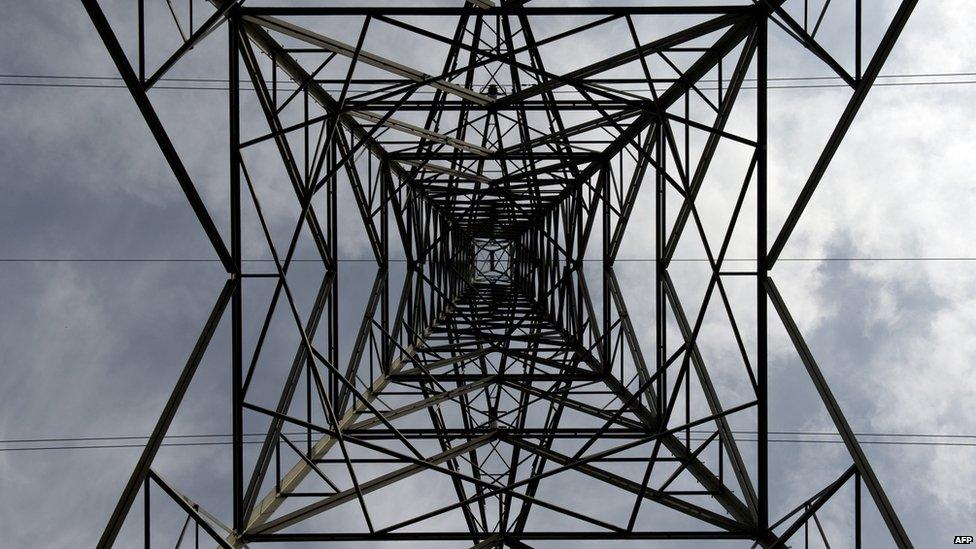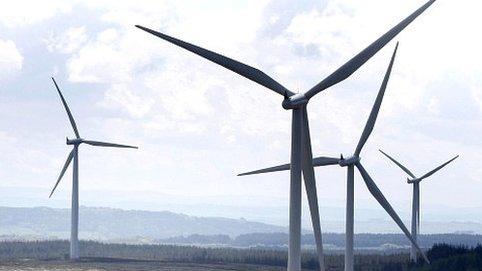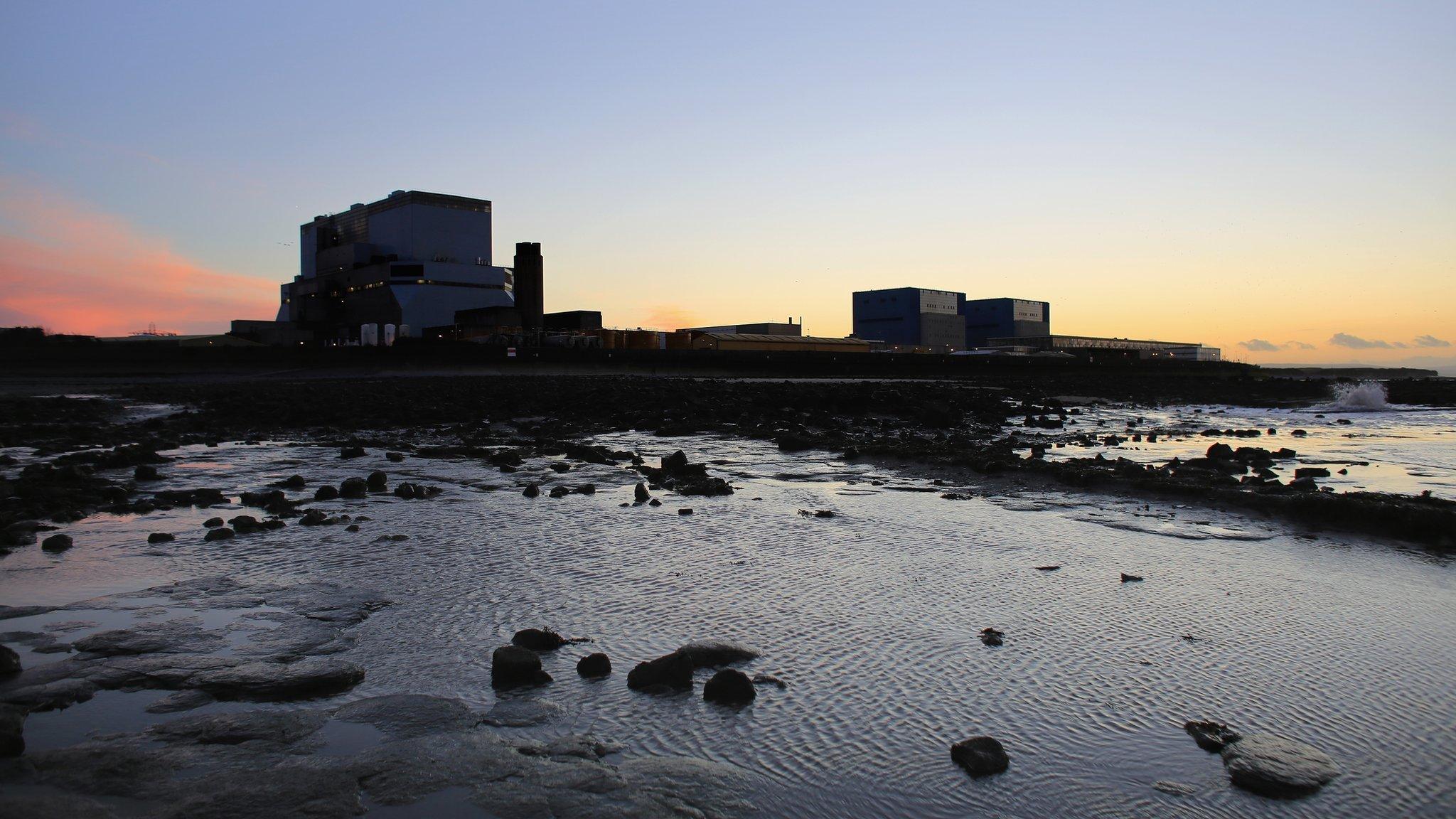Diesel farms in line for power payout
- Published

Diesel farms could this week win contracts worth hundreds of millions of pounds as part of a Government scheme to keep the lights on.
The payments, which will add to our energy bills, are intended to ensure there is enough generating capacity on the power network.
Critics say the capacity market has failed to deliver new gas plants to replace aging coal power stations.
The government says its priority is reliable, affordable energy supplies.
Capacity Auction
The diesel farms are expected to win contracts in a capacity auction that gets underway today.
Overseen by National Grid, the auction is intended to secure 45 gigawatts of power for a period of four years.
Companies with existing power stations and those planning new generating plants will take part. For the first time the auction will also be open to the operators of interconnector cables that carry electricity between the UK and the continent.
The auction is designed to deliver the power at the lowest price.
But a new report suggests that instead of ensuring large gas plants are built, the capacity market has incentivised the growth of diesel generation, which is less clean than gas.
'Sky-high returns'
"In the same week that world leaders are in Paris negotiating a climate deal, the UK government is handing out new subsidies to the most polluting form of electricity generation available," said Jimmy Aldridge of the Institute of Public Policy Research.
"This is allowing sky-high returns for diesel investors, but terrible value for money for consumers" he said.
The think-tank estimates that operators of diesel sites won £109m worth of contracts in last year's capacity auction.
Based on the companies that have registered interest in this week's event, it estimates that diesel generation could secure up to £434m more.
Together with other payments, the IPPR estimates that diesel operators earn returns of at least 23% on their investments.
It is calling on the Government to prevent diesel generation from taking part in subsequent auctions and for constraints on those who have already secured capacity payments.
New build
The capacity auction is designed to provide an incentive for firms to keep power plants online.
It is also meant to ensure new plants are built as older plants come off the system.
Earlier this month the Energy Secretary Amber Rudd confirmed plans to shut all coal-fired plants by 2025. She said that it was "imperative that we get new gas-fired power stations built" to replace them.
But the first capacity auction, held last year, cleared at a lower price than expected.
As a result, only one new-build gas project won a contract.
The firm behind it, Carlton Power, has since struggled to find investors and accepts that it will miss its original 2018 deadline.
"We are in talks with potential investors to finance our Trafford gas-fired power station near Manchester with the aim of reaching a financial investment decision during Spring 2016", says Alan White, Project Finance Director at Carlton Power.
"If these talks are successful, the 1.9-gigawatt power station would enter service in the early part of 2019, generating secure electricity for 2 million homes."
Mr White says that while financing major energy projects has been challenging for a number of years, he's encouraged by the Government's renewed policy commitment in wanting more new-build gas-fired stations built over the next decade.
Diesel farms
There's been a surge in the growth of diesel generation in recent years.
The sites are made up of blocks of diesel generators which can respond quickly to provide power when demand on the grid increases.
Despite environmental concerns, investors find the technology attractive as sites can access several types of payments in the energy market while being exempt from a number of charges paid by larger power plants.
The climate think-tank Sandbag estimates that diesel power firms could bid for as much as 1.5 gigawatts of capacity this week.
Dave Jones, an energy analyst at Sandbag, says that the auction is failing to deliver the right type of power.
"The UK needs some new gas power stations to be built quickly, to replace closing coal power stations", he says.
"However, we are concerned that new gas power stations will be crowded out of the capacity mechanism by small diesel and gas generators. Although these smaller generators are cheap to build, they are neither cheap nor clean when they are required to run."
Government Response
The Government says the capacity market is deliberately technology-neutral to buy the lowest priced capacity to deliver value for money for consumers.
It estimates the capacity market will add around £14 to to a typical annual energy bill.
A spokesperson for the Department of Energy & Climate Change said:
"Our number-one priority is to ensure that hardworking families and businesses have access to secure, affordable energy supplies they can rely on, now and in the future.
"The Capacity Market is a key part of our electricity market reform. The competition helps to drive down costs, while ensuring we have enough generation to power the nation."
- Published11 June 2013

- Published21 October 2015
